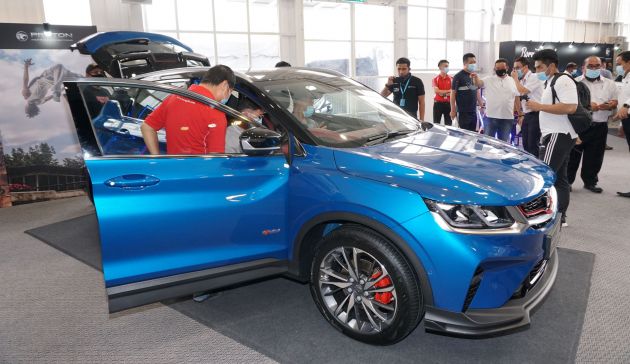We continue to look at how each bank is handling the Pemulih six-month bank loan repayment, which was announced last month and is eligible for all Malaysians. This time, we’re focusing on Public Bank, which has released details of its own offerings as applications open today.
As with the other banks, the company is offering either a full deferment of instalments or a 50% reduction – both for a period of six months – under its Targeted Repayment Assistance (TRA+) scheme. This offer is open to all hire purchase and AITAB Hire Purchase-i car loans for individuals (B40, M40 and T20) and micro enterprises, with automatic approvals for those who opt-in. Small and medium enterprises (SMEs) that have been financially affected by the coronavirus pandemic may also apply.
It’s important to remember that the moratorium is not a loan waiver, so you’re not getting six months of “free instalments.” Rather, if you select the first option, your loan tenure will be extended by six months and will be accompanied by higher interest, as the latter will continue to accrue during the deferment period. There is, however, no compounding interest applied.
As for the second option, the tenure will be extended by three months, with the customer paying the usual instalment amount during this period. The bank did not specifically mention when the additional interest is payable for both cases, but it should be included in the final instalment in one lump sump, as is the case with the other banks.
Like RHB and AmBank, Public Bank did not provide an example of the deferment in numbers, but the scheme should work identically to Maybank’s example, as shown above. Of course, the interest will vary according to your loan amount, remaining tenure and agreed interest rate, so you should confirm the details with your bank before you decide to delay your instalments.
Public Bank is also offering a customised payment schedule that includes a six-month deferment of instalments and reduced instalment payments through an extension of the loan tenure of up to two years. This is applicable to all individual and business customers who have been financially affected by the pandemic, with approvals subject to the bank’s terms and conditions and sole discretions.
This third option essentially means that after deferring your payments, your monthly instalments will be slightly lower, although you will be paying for a longer time. The catch is that your interest rate will also be higher, so you’ll be paying more for your car in the long run.
The example given by Public Bank shows a nine-year loan amounting to RM70,000, with an interest rate of 2.68% per annum and monthly instalments of RM805. The borrower opts for the customised plan with three years remaining; the RM35,575.57 still owed to the bank is effectively refinanced into a five-year loan with an interest rate of 2.91% and monthly instalments of RM755, payable immediately after the deferment.
As the table shows, the borrower will be paying an extra RM2,070.50 due to the additional interest, which appears to be prorated so they won’t be massively shocked by an enormous final instalment. Oddly, the company also provided examples for three- and four-year extensions, even though the scheme is capped at two years.
Unlike the previous targeted assistance offered by banks, you won’t need to provide any documents nor any proof of a pay cut or job loss. All you’ll have to do is apply either online or manually through email (to hpcovidsupport@publicbank.com.my), the account holding branch or the hire purchase centre where the loan was made, using this form.
Aside from Public Bank, banks that have announced their Pemulih moratorium options include:
The post 2021 Public Bank Pemulih Moratorium for car loans – 6-month deferment or 50% reduction in instalments appeared first on Paul Tan's Automotive News.




0 Comments